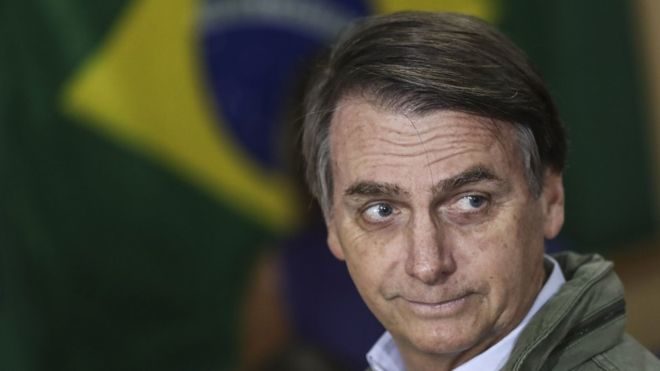October 7th saw Jair Bolsonaro elected as the president of Brazil, a far-right politician whose beliefs are outwardly racist, homophobic and sexist.
His repertoire includes comments such as telling a reporter she did not ‘deserve’ to be raped, saying he would rather see his son dead than gay, and stating that his sons would not date black women because they are ‘well raised’. If you think this sounds at all familiar then you’re not alone, many have drawn parallels between Bolsonaro and Trump, in terms of a crowd-pleasing, outrageous persona that forgoes truth and presents himself as anti-establishment at a time when faith in the government is at an all-time low.
So why does there seem to be a pattern of far-right candidates gaining power in democratic countries? There seems to be a theme of desperation, of people turning to something completely different in a bid for change. Brazil is currently experiencing the worst recession in its history, with 13 million unemployed people, and crime rates having sky rocketed to record breaking numbers of homicides. On top of all this, Brazil’s previous democratic government is in the middle of a huge corruption scandal, reducing the level of faith people have in their government. Bolsonaro has capitalised on this, placing emphasis on law and order through his military experience and high praise of Brazil’s armed forces now, as well as endorsing harsh punishments, including torture.
Considering then what the country is facing, it is hardly surprising that many Brazilian people are desperate for a dramatic change, so much so that many are willing to overlook Jair’s offensive views if only he can stop the violence.
As we also saw in the USA in 2016, this election in Brazil appears to have been largely determined by social media. In the case of Brazil, WhatsApp played a particular role, as now feels customary in a post-truth era. I for one associate WhatsApp with my technologically ill-advised parents and not a dramatic and controversial shift in a country’s politics, however, over 25% of internet users in Brazil use WhatsApp. The App seems to have been crucial in the circulation of fake news, meaning that it had a huge impact on people’s opinions and voting intentions. This issue was compounded by the fact that unlike social media such as Facebook, WhatsApp is far less public, leaving even less room for the correction of fake news, allowing increasing amounts of ‘facts’ stemming from opinions and emotions alone.
Disturbingly, a record number of people abstained from voting in this election, as a result of which many feel that democracy is threatened. This is alarming, as at a time where the truth is merely a matter of circumstance, using your voice is surely more important than ever.
Tasha Austen
Image: BBC

